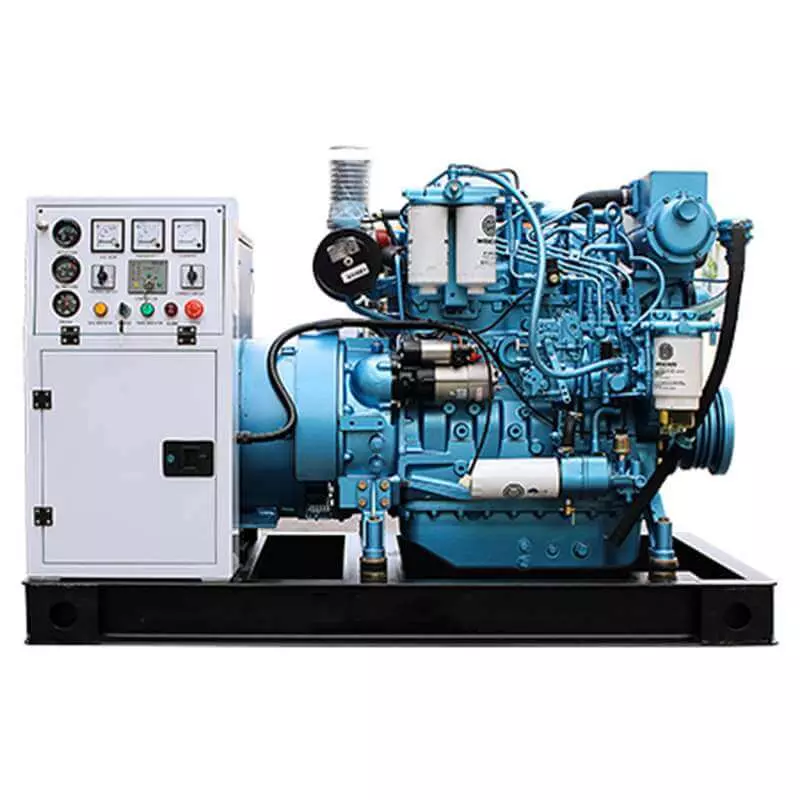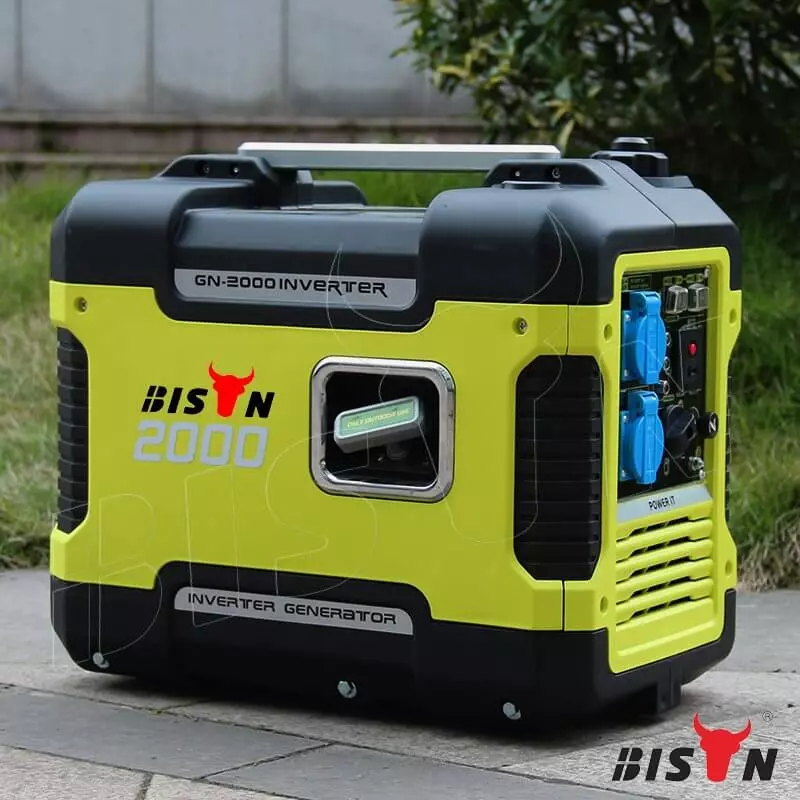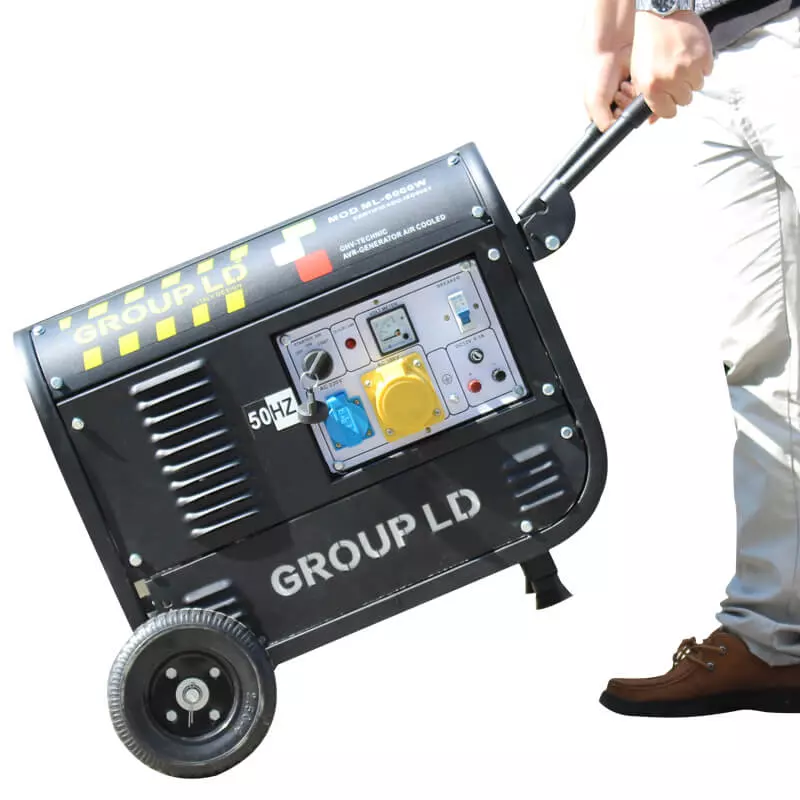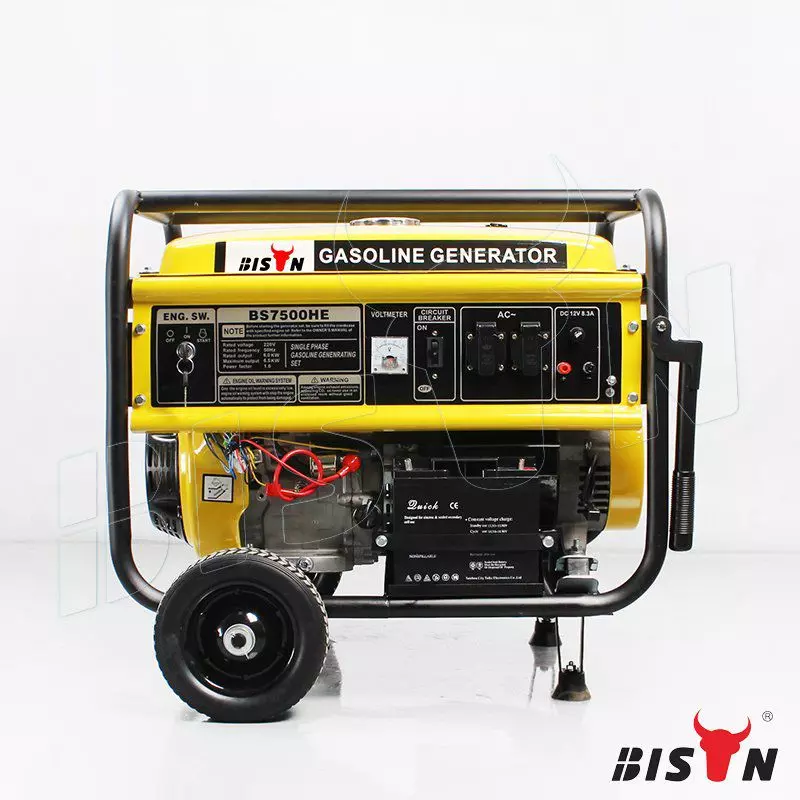Alternator vs generator: What’s the difference
2022-10-09
Table of content
To find key differences when comparing alternators and generators, first, you need to know what they are.
This article will cover alternators and generators in detail and compare the two to clarify their differences. Many people know that they are used to generate electricity but do not know the difference between them.
Do you know the difference between them? Read on to find the answer to this question.

What is an alternator?
An alternator is a power generation system. Its role is to convert mechanical energy into alternating current (AC). The magnets in an alternator spin, creating an electrical current to distribute the energy, which is how you get electricity from this type of generator.
The poles of the rotor are excited by a direct field current. When the rotor rotates, the magnetic flux cuts through the stator conductors, so EMF is induced in it. As the poles rotate N and S alternately, they induce EMF and current in the armature conductor, which rotates first clockwise and then counterclockwise. Therefore, an alternating current is generated.
What is a generator?
Like an alternator, a generator can convert mechanical energy into electrical energy. But when it comes to alternators vs generators, you should know that generators are capable of producing both alternating and direct current.
You can get DC or AC power from a generator. The rotor inside the generator rotates, and the rotation of this rotor generates electrical energy, which creates a magnetic field that produces the energy needed to rotate the armature.
The generator has a rectangular rotating coil that rotates around its axis in a magnetic field. Permanent magnets or electromagnets provide the magnetic field. Two slip rings join the coil’s ends together. The current which is induced in the coil is collected by the slip ring, and it then passes to the external load resistor R. The rotating coil is called the armature and is made of copper.
DC and AC: What is it?

DC and AC: What is it?
We know that generators can provide alternating current or direct current, while alternators can only provide alternating current. In this section, let us discuss what AC and DC are.
a) Alternating current (AC)
You probably know that the flow of electrons inside a conductor is called current.
Electrons flow back and forth in an alternating current, which means the current is alternating in nature. The majority of your home’s appliances use this kind of current. But the voltage and frequency of electricity should meet the standard.
This periodic change in the direction of current is manifested in the form of a sinusoidal waveform, also known as an AC waveform.
The reason for this is the magnetic poles inside the generator and alternator. When one side of the winding passes under one pole, the current will go in one direction.
When the same side is under the other pole, the current direction reverses, which continues as the winding continues to spin and generate alternating current.
b) Direct current (DC)
DC means direct current. DC is one in which electrons flow in only one direction. And the magnitude of the current remains the same; it doesn’t change over time.
Since there is no oscillation, we can say that the frequency of DC is zero. Due to its constant flow of electrons, direct current is mainly used to power electronic devices.
The current produced inside an alternator or generator will always be alternating current. You cannot generate direct current from them. The alternator’s alternating current is converted to direct current using rectifiers or brushes.
The process of converting AC to DC is called rectification.
Side-by-side comparison of alternators and generators

Side-by-side comparison of alternators and generators
Let’s look at the side-by-side comparison of alternators and generators.
1) Alternator vs generator: Working principle
Both of them have similar parts, but some important differences make them different from each other.
Both devices can generate electricity, but they do it differently. In an alternator, electricity is generated due to the rotation of the magnetic field inside the stator. Meanwhile, a generator produces electricity by windings of wires rotating in a fixed magnetic field.
Both devices rely on the principle of electromagnetic induction, but the absence of a commutator makes the alternator a simpler machine that requires less mechanical attention and maintenance. However, that doesn’t mean the generator is a weaker device. Alternators are more economical.
2) Alternator vs generator: Efficiency
When compared to generators, alternators are a bit more economical. It also means that they produce higher output relative to the required input.
Alternator brushes are said to last longer because they are not used as often throughout the power generation process. This gives it another efficiency advantage, as fewer parts need to be repaired.
3) Alternator vs generator: AC/DC power
Alternators and generators also differ in power output. There are two types of current, both serving different machines and equipment. Alternating current or AC flows in alternating directions. Instead, direct current or DC flows in one constant direction.
AC power is often used in homes and businesses because it is the standard currency in electrical outlets. Direct current is found in electronic devices that rely on batteries, such as cell phones, alarm clocks, and portable speakers.
As the name suggests, an alternator runs on AC power. Therefore, the electricity produced by the alternator must first be converted to DC before the car’s battery can use it.
4) Alternator vs generator: Polarization
For alternators, polarization is not required. However, the generator needs to be polarized after installation.
5) Alternator vs generator: Output current
An alternator can only provide alternating current, while a generator can provide alternating current and direct current.
6) Alternator vs generator: Power output
In an alternator, you can vary the voltage output by adjusting the field current through an automatic voltage regulator. The latest inverter generators can adjust their speed to produce less power without sacrificing the desired frequency.
7) Alternator vs generator: Applications and uses
Alternators and generators also differ in where they are used. The alternator is most commonly found in a car, assisting the battery to power the car and get all the electrical components up and running.
Meanwhile, generators are used in residential and industrial environments. They are used as emergency power during power outages and storms; also for outdoor work and activities.
Alternator vs generator: Things to remember
● The alternator’s mechanism converts the main power’s mechanical energy into alternating current.
● The generator transforms the mechanical energy from the primary cause into either AC or DC.
● The induced current in an alternator is an alternating current.
● The generator produces both AC and DC power.
● The alternator has a magnetic flux with a rotating field.
● The input power to the generator is taken from the rotor.
● The input power in the alternator is taken from the stator.
FAQs
1) Can an alternator charge a dead battery?
The purpose of the alternator is to maintain the charge of the battery, not charge it. An alternator may experience premature failure if it is used to recharge a dead battery.
2) Why do cars use alternators instead of generators?
Alternators replaced DC generators in the 1960s because they were lighter, reliable and produced more power. They are usually mounted on the front of the engine and connected to the crankshaft by an accessory drive belt.
3) Which is better, generator or alternator?
The alternator’s output is greater than the generator’s. The alternator uses only as much energy as it needs so that we can save more energy. Generators use all the energy produced, so they save less energy.
4) How much electricity can an alternator generate?
Traditional alternators can only produce about 500 to 600 watts of power. But today, a single alternator can generate up to 2500 watts of power, depending on the power demand.
5) How fast does an alternator have to spin to generate electricity?
Most alternators need to spin at around 2,400 rpm at idle, with a maximum output above 6,000 rpm and no more than 18,000 rpm.
6) What are the advantages of parallel operation of alternators?
Parallel operation of alternators has several advantages, some of which are listed below:
● If the alternator fails, the parallel operation provides a continuous connection to its consumers.
● This arrangement of the alternator is economical and enables efficient operation.
● Additional alternators are arranged parallel to each other, so it is easy to install extra alternators when needed.
● This arrangement helps to meet the need for substantial alternators with multiple alternators and their simultaneous operation.
Conclusion
When the magnetic field in the stator rotates, the alternator produces electrical energy.
The armature or wire winding in a generator rotates in a set magnetic field to generate current.
Alternators save energy by simply using the energy needed. Generators use all the energy produced.
In contrast to generators, alternators only produce voltage when needed, whereas generators provide voltage all the time.
An alternator provides more output than a generator. Alternator brushes last longer than generator brushes. This is because the brushes in the alternator are only used to transmit electricity to power the rotor, and the slip rings they run on are smooth.
The alternator won’t charge a dead battery; if you try to charge it, it may overheat and not charge. On the other hand, we can use a generator to recharge a discharged battery.
Still, have questions?
BISON is here to help. We offer a wide range of generators for home and business use. We'd love to help you find a generator that suits your needs.
Contact our team online or call us today at (+86) 15967890123 to get answers to your questions.




